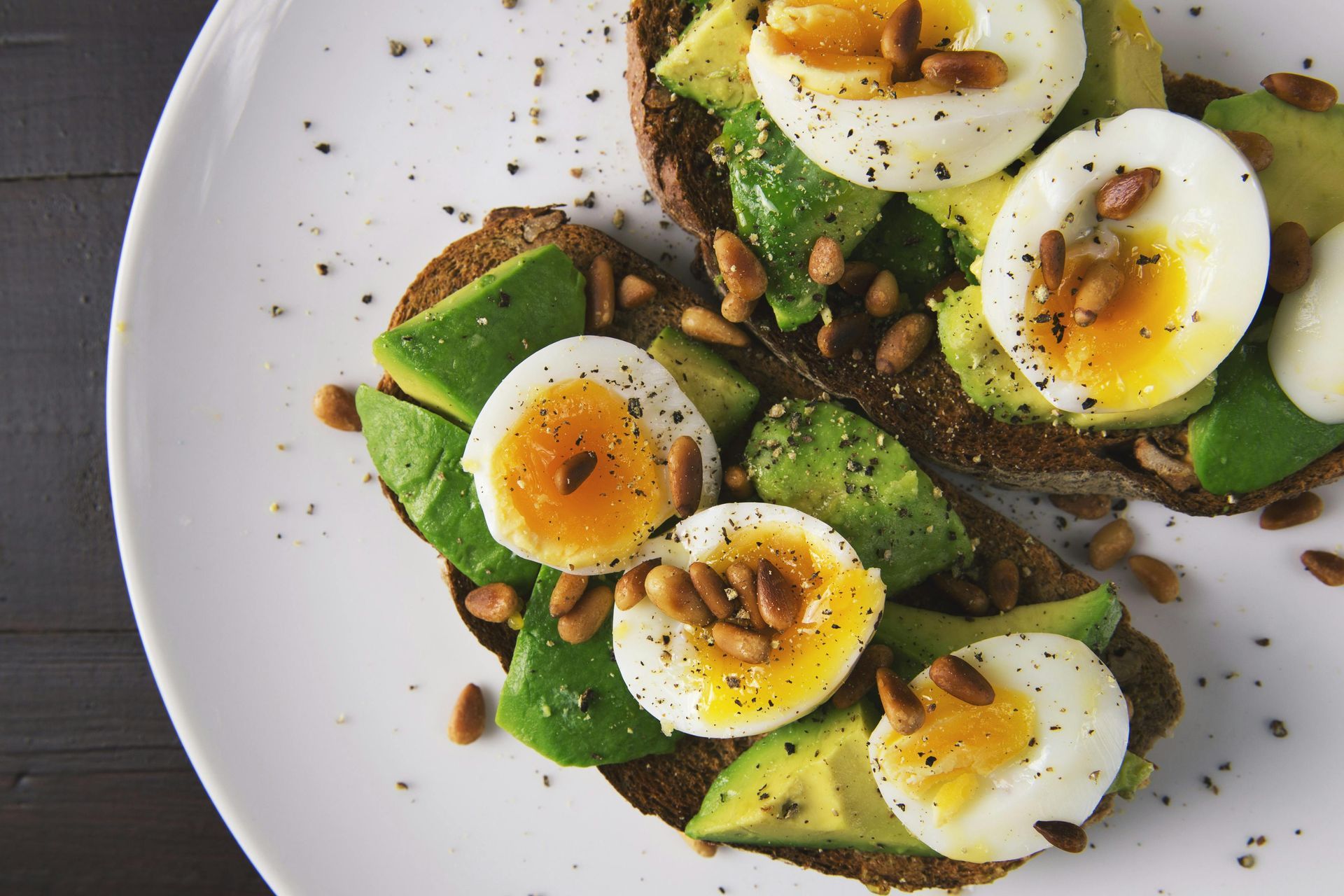5 Ways to Boost Your Metabolism After 40 Without Starving Yourself
Boost your metabolism after 40

If you feel like your metabolism has slowed down after 40, you're not imagining it. You might be eating the same foods, moving your body, and doing everything that used to work — yet the weight just won’t shift like it used to.
And if you're in perimenopause or menopause, this shift can feel even more frustrating. Belly fat appears seemingly overnight, energy dips, sleep becomes elusive, and your body starts to feel unfamiliar.
As a dietitian and somatic psychotherapist, I want you to know this: Starving yourself is not the answer. In fact, undereating and overexercising can slow your metabolism even more, increase cortisol, and lead to fat storage — especially around your belly.
The good news? You can absolutely boost your metabolism after 40 in ways that are sustainable, empowering, and supportive of your whole self — body, mind, and energy.
1. Eat Enough to Fuel Your Body – Especially Protein
One of the most common mistakes women make after 40 is not eating enough — especially protein. As we age, we naturally lose muscle mass, a process known as sarcopenia. Because muscle is more metabolically active than fat, this loss slows your resting metabolic rate.
Undereating also signals to your body that food is scarce. This activates a stress response, increasing cortisol and encouraging fat storage, particularly in the abdominal area.
What to do:
Aim for 20–30g of protein at each meal
Include protein-rich foods like lentils, tofu, tempeh, eggs, legumes, seeds, and protein powders
Avoid skipping meals, which increases stress hormones and disrupts blood sugar balance
Protein supports muscle maintenance, hormone production, and satiety — all essential for a healthy metabolism.
2. Lift Weights and Build Muscle to Fire Up Your Metabolism
Resistance training is one of the most powerful ways to increase metabolism after 40. It builds lean muscle, improves insulin sensitivity, strengthens bones, and supports fat loss — particularly around the belly.
You don’t need intense gym sessions. Functional movement combined with basic strength work can make a big difference.
What to do:
Incorporate 2–3 sessions of resistance training each week
Use bodyweight, resistance bands, or light weights
Combine with gentle cardio like walking, dancing, or swimming to support your nervous system
More muscle means more energy burned at rest, better blood sugar control, and stronger hormonal balance.
3. Balance Your Blood Sugar to Reduce Fat Storage
Unstable blood sugar causes insulin spikes, which promote fat storage — especially in the midsection. Over time, this can lead to insulin resistance, fatigue, cravings, and weight gain.
During perimenopause, oestrogen levels drop, which naturally makes the body more insulin resistant. This is why many women feel hungrier, more tired, and gain fat even when they haven’t changed their habits.
What to do:
Eat balanced meals with protein, fibre, healthy fats, and slow-digesting carbohydrates
Avoid ultra-processed foods and sugary snacks
Eat within 1–2 hours of waking, and then every 4–5 hours to keep blood sugar steady
Balanced blood sugar reduces insulin spikes, lowers cortisol, and prevents the energy crashes that trigger overeating or emotional eating.
4. Support Your Nervous System for Metabolic Health
Your metabolism is not just about food and exercise — it’s deeply connected to your nervous system. When your body is in a chronic state of fight-or-flight, it releases cortisol, suppresses digestion, and stores fat for protection.
Chronic stress also affects your sleep, cravings, emotional regulation, and hormone production. Nervous system dysregulation is one of the most overlooked causes of weight gain after 40.
What to do:
Practice breathwork, deep belly breathing, or vagus nerve stimulation
Use gentle movement, such as yoga, nature walks, or somatic dance to release stored tension
Reflect on your inner dialogue and practice self-compassion to calm internal stress
When the body feels safe, it shifts out of survival mode, allowing metabolism, digestion, and hormone balance to return to a natural rhythm.
5. Prioritise Rest and Deep Sleep for Hormone Reset
Sleep is essential for healthy metabolism — yet it’s often the first thing to go during perimenopause. Poor sleep affects your appetite hormones (ghrelin and leptin), increases cortisol, and disrupts insulin function — all of which make weight gain more likely.
Hormonal changes, night sweats, and anxiety can make sleep more challenging, but creating consistent routines can help restore balance.
What to do:
Aim for 7–9 hours of sleep per night
Keep your bedroom cool, dark, and tech-free
Avoid eating large meals or drinking alcohol late at night
Wind down with magnesium-rich foods, herbal teas, gentle stretching, or journaling
Deep sleep helps your body repair, regulate hormones, reduce inflammation, and support emotional resilience.
Final Thoughts: Your Body Isn’t Broken — It’s Asking for Support
Your metabolism after 40 is not something to fix or fight — it’s something to listen to. It’s responding to hormonal changes, stress, nutrient needs, and your body’s call for safety, nourishment, and care.
When you focus on supporting your body — with real food, movement, rest, and emotional connection — you create the environment for sustainable energy, balanced weight, and renewed vitality.
Let your metabolism be a signal, not a sentence.
Ready to reconnect with your body and support your metabolism from the inside out?
Book an appointment with me today for personalised support that blends nutrition, somatic therapy, and lifestyle strategies designed for women in perimenopause and beyond.
📍 In-person in Melbourne or online Australia-wide
🔗 Book now at
www.ancavereen.com
Let’s help your body feel safe, strong, and supported — together.




